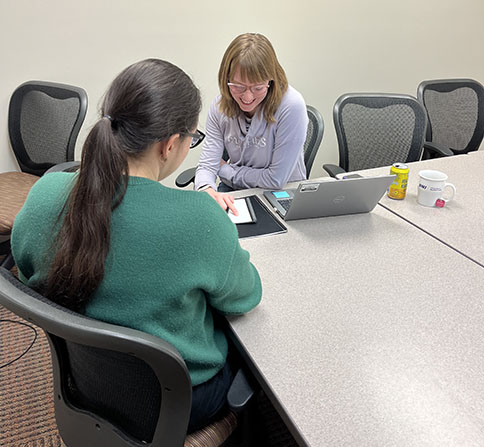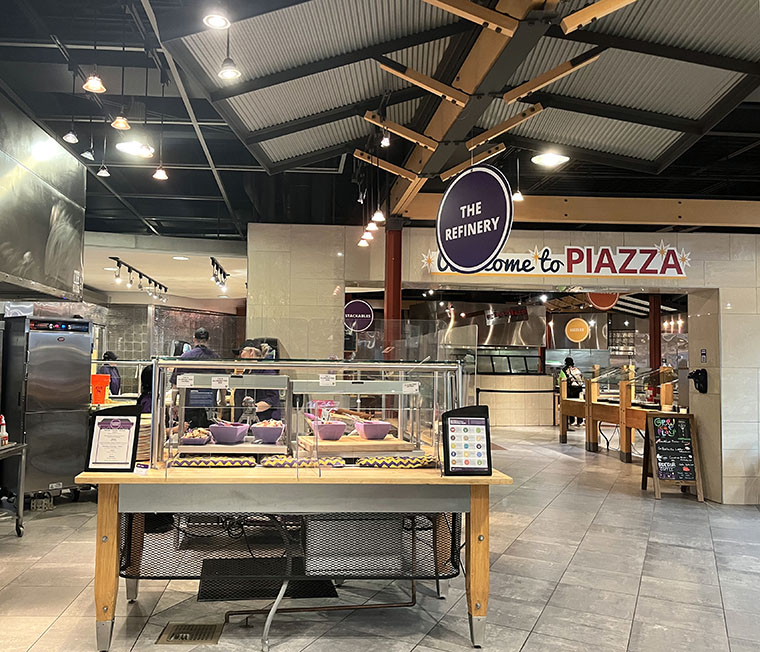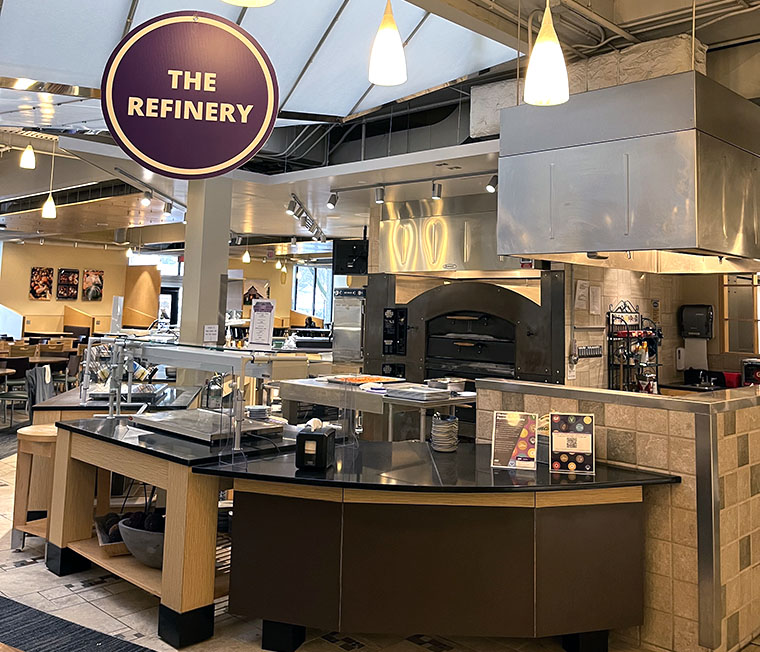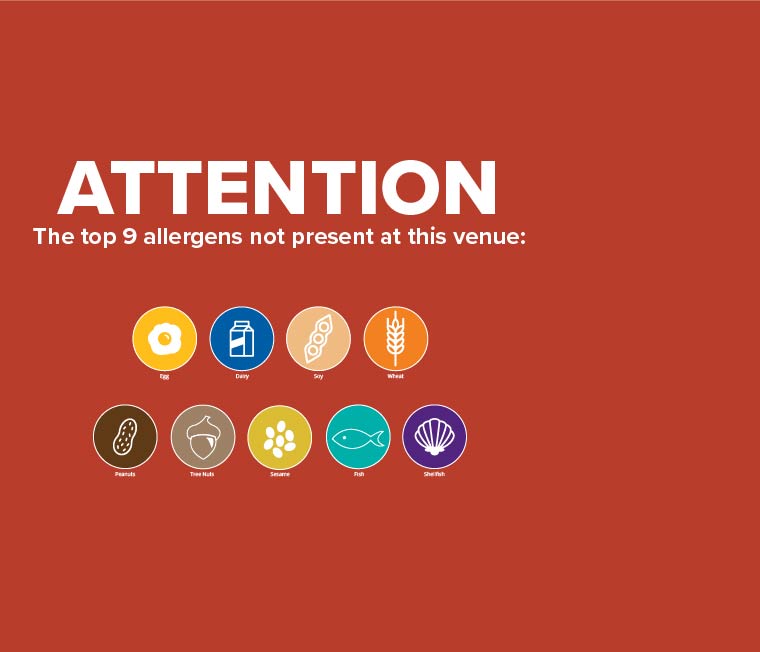Special Diets
We have something for everyone.
UNI Dining offers options to enable customers with dietary needs to eat healthfully on campus. We've designed a program to meet the requirements of our students with food allergies, food intolerances, food sensitivities, celiac disease or other dietary restrictions and/or medical needs; as well as those following a vegan/vegetarian diet. We believe that all individuals, regardless of their dietary needs, should have access to safe and delicious meals on our campus. We emphasize the importance of reaching out to our registered dietitian to discuss how dining needs can best be met.
At UNI, a team approach led by you, our informed customer, is the best preparation in assisting you to have enjoyable dining experiences. UNI Dining will provide you with the information needed to manage food allergies, food sensitivities and other medical needs. Here are some ways we make it easier for you to manage your meals:
- A Registered Dietitian is available for consultation to discuss various tools and resources available for your safe and healthy dining experience.
- Rialto and Piazza offer designated allergy areas in their dining facilities that serves one entrée that is free of the top eight allergens, one entrée that is gluten-free, and complementary sides that are free of the top eight allergens. Vegan items are available in designated areas as well. Additional items can be prepared to help meet students' individual needs.
- All management staff attend Allertrain U® training, an ANSI-accredited training available through MenuTrinfo® and taught by an on-campus Master Trainer. Managers and supervisors are required to be ServSafe® certified, a food safety program including food allergen management.
- All culinary staff are trained in AllerTrain Lite®, available through MenuTrinfo® and taught on campus by a Master trainer. They are also required to be ServSafe® certified, which covers all aspects of food safety including food allergen management.
- Our interactive online menu site allows you to filter out the allergens you wish to avoid by using the Set Filter option on the menu pages.
- A food allergy policy to inform students of the options available through UNI Dining Services.
- Consultation on issues such as food allergies and intolerances, vegetarian and vegan diets, modified diets and weight management.
- Education on ingredients, food sourcing and dining hall tours.
- Materials related to eating healthy on and off campus, as well as portion control.

For students with more attentive allergy or dietary needs, the GET mobile app can be used to pre-order and pick-up meal items from Piazza or Rialto. Students need to meet directly with our registered dietitian to learn more and gain access to the Dietary Needs portion of the GET mobile app.

- Be your own advocate.
- Inform UNI Dining of your needs.
- Know your allergy.
- Form relationships with UNI Dining staff.
- Notify Dining staff with any concerns related to ingredients and preparation methods.
- Utilize nutrition information available through the online menus.
- Review daily menu offerings.
- Carry a prescribed epinephrine auto-injector.
- Let friends know about your allergies.
- Don't eat or drink anything with no ingredient information.

- Consultation on issues such as food allergies and intolerances, vegetarian and vegan diets, modified diets and weight management.
- Education on ingredients, food sourcing and dining hall tours.
- Materials related to eating healthy on and off campus, as well as portion control.

For students with more attentive allergy or dietary needs, the GET mobile app can be used to pre-order and pick-up meal items from Piazza or Rialto. Students need to meet directly with our registered dietitian to learn more and gain access to the Dietary Needs portion of the GET mobile app.

- Be your own advocate.
- Inform UNI Dining of your needs.
- Know your allergy.
- Form relationships with UNI Dining staff.
- Notify Dining staff with any concerns related to ingredients and preparation methods.
- Utilize nutrition information available through the online menus.
- Review daily menu offerings.
- Carry a prescribed epinephrine auto-injector.
- Let friends know about your allergies.
- Don't eat or drink anything with no ingredient information.

Dining Accommodations
Students who have a food-related disability, such as a food allergy or celiac disease, or a religious-based dietary need and wish to apply for housing that requires a meal plan may request a dining accommodation if they feel the current meal plan and self-management resources do not meet their individual needs. This determination should be made after consultations with the dietitian. Students should begin the request process before signing a housing contract for an existing condition or as soon as a new diagnosis is made during the academic year. Please review UNI Dining Services' Food Allergy and Food Sensitivity Policy for more information.
Disability-Related Dining
Depending on the nature of the disability and/or requested accommodation, UHD may consult with Student Accessibility Services. Because of this collaborative process, accommodation requests can take time to complete, so please plan ahead to ensure timely processing prior to housing contract deadlines. Students who may need accommodations in other areas of the university because of their disability should contact Student Accessibility Services directly to discuss documentation and registration requirements.
Plant-Based Dining
Vegetarian and vegan options are readily available at every meal in the dining halls, with options easily identifiable by either a vegetarian or vegan icon. We encourage guests to review online menus before visiting the dining hall and to read menu signage carefully when making selections. Students and other guests should never hesitate to ask for help from staff if questions arise or assistance is needed.
Religion-Based Dining
Some religious dietary requirements, such as maintaining a vegetarian or vegan diet, can be accommodated in the dining halls. However, students with highly specific or complex restrictions may find that their needs cannot be met through a residential dining plan.



